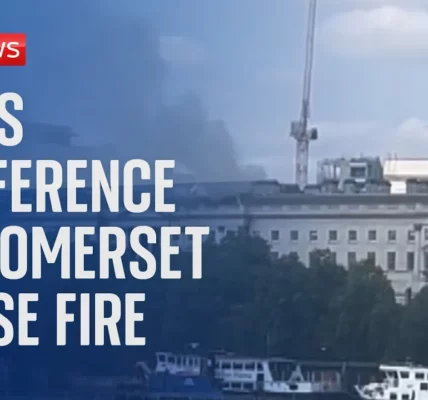Tomorrow’s Newspaper Front Pages: Tragedy and Political Developments

In this article, we delve into the significant stories making headlines in tomorrow’s newspapers, focusing on the tragic channel disaster, political controversies, and pressing social issues facing the UK today.
Introduction
The upcoming newspaper front pages reveal a landscape filled with sorrow, political maneuvering, and social unrest. Highlighting the channel tragedy that resulted in the loss of at least 12 lives, including women and children, this overview provides insights into the pressing stories that shape public discourse. From inquests to international relations, we examine how these narratives intertwine, reflecting the complexities of contemporary society and governance.
The Channel Tragedy and Its Impact
The Guardian leads with the heartbreaking story of a channel tragedy, where a boat carrying asylum seekers capsized, resulting in at least 12 casualties. The implications of this incident resonate deeply within the UK and beyond.
Details of the Incident
According to reports, the overcrowded vessel was carrying around 70 individuals, with six children among the deceased. The tragedy underscores the desperate measures many individuals take to seek safety and a better life in the UK.
Humanitarian Concerns
This situation brings to light critical humanitarian issues, as many of the victims hailed from Eritrea, a country plagued by conflict and human rights abuses. The perilous journey across the channel reflects the broader crisis of forced migration and the role of traffickers in exploiting vulnerable populations.
- At least 12 confirmed dead, including 6 children.
- Majority of victims from Eritrea, fleeing human rights violations.
- Calls for more effective intervention to prevent such tragedies.
Political Repercussions and Discussions
The political landscape is also shifting as discussions around immigration policies gain momentum following the tragedy. The Labour Party faces internal challenges as it navigates public sentiment and party dynamics.
Labour Party’s Response
Under the leadership of Keir Starmer, Labour has scrapped the controversial Rwanda scheme, which aimed to deter asylum seekers. Critics argue that this decision reflects a lack of effective solutions to the ongoing small boat crisis.
- Labour’s decision to abandon the Rwanda scheme.
- Internal party divisions over immigration policy.
- Public pressure for more humane approaches to asylum seekers.
International Relations and Arms Sales
In another significant story, The Times reports on the complexities of UK-US relations concerning arms sales to Israel. The UK government’s decision to revoke 30 out of 350 export licenses for military equipment raises questions about international law and humanitarian considerations.
Social Issues and Public Sentiment
Beyond the immediate tragedies, wider societal issues are also coming to the forefront. Concerns regarding winter fuel payments for pensioners and the implications of economic policies are stirring public debate.
Winter Fuel Payments and Economic Challenges
As the government prepares for upcoming budget announcements, the decision to adjust winter fuel payments has ignited discussions about intergenerational equity and social responsibility.
Public Reactions and Expectations
The public sentiment reflects a growing concern over financial security, particularly among vulnerable populations. Many are questioning the government’s commitment to social welfare and the implications of austerity measures.
Conclusion
The front pages of tomorrow’s newspapers illustrate a society grappling with tragedy, political complexity, and social challenges. As these stories unfold, it is crucial for the public to remain informed and engaged. We encourage readers to reflect on these issues and advocate for thoughtful solutions that prioritize human lives and dignity. For further insights, check out our related articles on immigration policy and social justice.
“`




